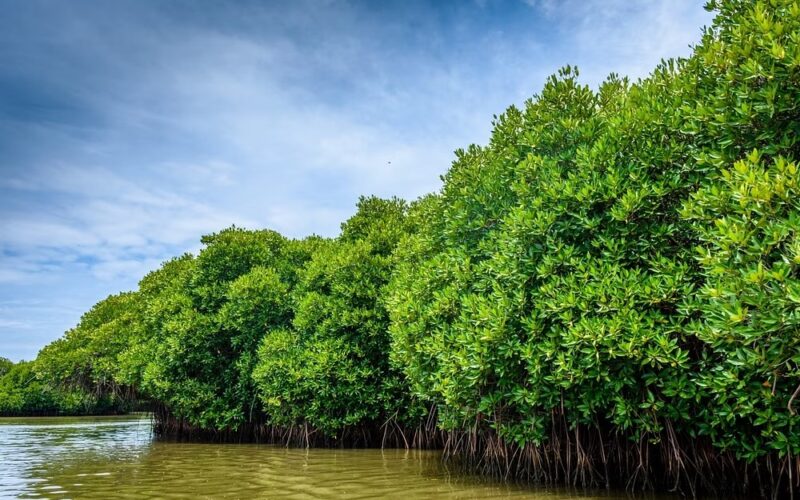Understanding Climate Change: Causes, Impacts, and Solutions
Climate change is a pressing global issue that affects us all. In recent years, it has gained significant attention due to its far-reaching consequences. This article explores the various aspects of climate change, from its causes to its impacts, and provides insights into potential solutions. Join us on this journey to better understand the challenges posed by climate change and how we can address them.
What Is Climate Change?
Defining Climate Change
Climate change refers to long-term shifts in the average weather patterns on Earth. These changes can manifest as alterations in temperature, precipitation, and more. It is a complex issue driven by a variety of factors.
Causes of Climate Change
Human Activities
The primary driver of modern climate change is human activities. Activities such as burning fossil fuels, deforestation, and industrial processes release greenhouse gases like carbon dioxide (CO2) into the atmosphere. These gases trap heat, leading to a gradual increase in global temperatures.
Natural Factors
While human activities play a significant role, natural factors like volcanic eruptions and solar radiation also influence the Earth’s climate. However, their impact is comparatively smaller than that of human-induced changes.
Impacts of Climate Change
Rising Temperatures
One of the most visible effects of climate change is the rise in global temperatures. This leads to more frequent and severe heatwaves, affecting both humans and ecosystems.
Melting Ice and Rising Sea Levels
The warming climate accelerates the melting of polar ice caps and glaciers, contributing to rising sea levels. This phenomenon threatens coastal communities worldwide.
Extreme Weather Events
Climate change intensifies extreme weather events such as hurricanes, droughts, and floods. These events have devastating consequences for communities and economies.
Disruption of Ecosystems
The delicate balance of ecosystems is disrupted as climate change alters temperature and precipitation patterns. This affects biodiversity and can lead to species extinction.
Key Takeaways
- Climate change refers to long-term shifts in average weather patterns, driven primarily by human activities.
- Greenhouse gas emissions from burning fossil fuels are a major contributor to climate change.
- Rising temperatures, melting ice, and extreme weather events are among the notable impacts of climate change.
Solutions to Climate Change
Transition to Renewable Energy
Reducing greenhouse gas emissions requires a shift from fossil fuels to renewable energy sources like solar, wind, and hydroelectric power.
Reforestation and Afforestation
Preserving and restoring forests can help absorb CO2 from the atmosphere, mitigating climate change.
Energy Efficiency
Improving energy efficiency in industries, transportation, and homes reduces emissions and saves resources.
Sustainable Agriculture
Adopting sustainable agricultural practices can reduce emissions from farming and increase food security.
The Role of International Agreements
Addressing climate change is a collaborative effort that transcends national boundaries. International agreements such as the Paris Agreement play a pivotal role in coordinating actions to combat climate change. This landmark agreement, signed by numerous countries, aims to limit global warming to well below 2 degrees Celsius above pre-industrial levels. By setting targets for reducing greenhouse gas emissions and promoting climate resilience, these agreements pave the way for a more sustainable future.
Climate Change Adaptation
In addition to mitigation efforts, adapting to the impacts of climate change is equally crucial. Communities worldwide are already experiencing the effects of a changing climate. Adaptation measures involve preparing for and responding to these changes. This includes developing resilient infrastructure, improving water resource management, and implementing early warning systems for extreme weather events. Adaptation strategies ensure that communities can withstand and recover from climate-related challenges.
The Economic Impact
Climate change has far-reaching economic consequences. The costs associated with damage from extreme weather events, loss of agricultural productivity, and healthcare expenditures due to climate-related illnesses are substantial. However, investing in sustainable solutions can also yield economic benefits. The green economy, characterized by clean energy, sustainable agriculture, and environmentally friendly technologies, offers opportunities for job creation and economic growth.
Individual Action
While governments, businesses, and organizations play a critical role in addressing climate change, individual actions are equally important. Everyday choices, such as reducing energy consumption, conserving water, and adopting eco-friendly transportation options, collectively contribute to emissions reduction. Moreover, raising awareness about climate change and engaging in environmental advocacy can drive positive change on a larger scale. Every individual has the power to make a difference in the fight against climate change.
Climate change is a multifaceted challenge that requires a comprehensive approach. By understanding its causes, effects, and potential solutions, we can work together to mitigate its impacts and secure a sustainable future for generations to come. International cooperation, adaptation measures, economic considerations, and individual actions all play vital roles in addressing this global issue. It is our collective responsibility to act decisively and make choices that promote a healthier planet.
How do greenhouse gases contribute to climate change?
Greenhouse gases, such as carbon dioxide (CO2), contribute significantly to climate change by creating the greenhouse effect. When these gases are released into the atmosphere, they trap heat from the sun, preventing it from escaping into space. This trapped heat leads to a gradual increase in global temperatures, resulting in a wide range of climate-related issues, including more frequent and severe heatwaves, melting ice caps, and altered precipitation patterns. CO2, primarily emitted from human activities like burning fossil fuels, deforestation, and industrial processes, is the primary greenhouse gas responsible for the current trend of global warming.
What can individuals do to combat climate change?
Individuals can play a crucial role in combatting climate change by making sustainable choices in their daily lives. This includes reducing energy consumption by using energy-efficient appliances, turning off lights when not in use, and insulating homes. Using public transportation, carpooling, or driving fuel-efficient vehicles can reduce carbon emissions from transportation. Minimizing waste through recycling and composting, and supporting sustainable practices such as buying locally sourced and eco-friendly products, also contribute to mitigating climate change. These individual actions collectively reduce greenhouse gas emissions and promote a more sustainable future.
Are there any natural factors contributing to climate change?
While natural factors like volcanic eruptions and solar radiation do influence climate, human activities have become the dominant drivers of contemporary climate change. Human-induced factors, such as the burning of fossil fuels and deforestation, release vast amounts of greenhouse gases into the atmosphere, far surpassing the impact of natural phenomena. The excessive accumulation of greenhouse gases, particularly carbon dioxide, remains the primary cause of the ongoing rise in global temperatures and the resulting climate changes we observe today.
How can reforestation help mitigate climate change?
Reforestation is a powerful tool in mitigating climate change as it involves the strategic planting of trees on deforested or degraded lands. Trees act as carbon sinks, absorbing carbon dioxide from the atmosphere during photosynthesis and storing it in their biomass and soil. This process helps to reduce the concentration of greenhouse gases, particularly CO2, which is a major contributor to global warming. By restoring forests, we not only sequester carbon but also promote biodiversity, enhance ecosystem resilience, and protect vital watersheds. Reforestation efforts are a critical component of climate change mitigation and contribute to a healthier planet.
Why is climate change a global concern?
Climate change is a global concern because its impacts are felt worldwide, irrespective of geographical location. Rising global temperatures lead to melting ice caps and glaciers, causing sea levels to rise and threatening coastal communities. Extreme weather events, like hurricanes and droughts, have devastating consequences for economies and populations across the globe. Additionally, climate change disrupts ecosystems, endangering countless species and diminishing vital resources. The interconnectedness of these effects means that climate change is not isolated to one region or country; it is a shared challenge that requires international cooperation and concerted efforts to mitigate its far-reaching consequences and secure a sustainable future for all.

